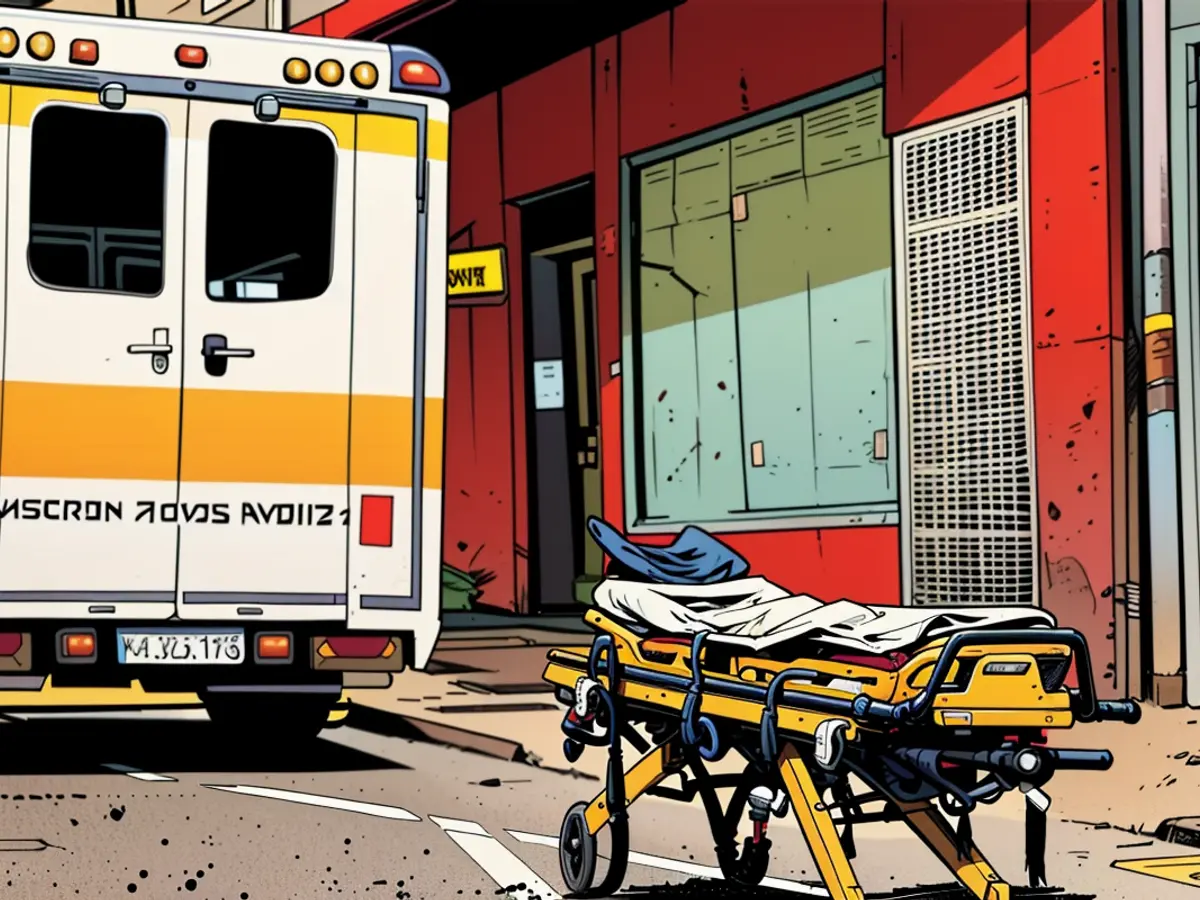Notfalle - Landtag passes stricter deadline for rescue deployments
In Baden-Württemberg, a Rettungswagen is expected to be faster at the scene in emergencies in the future. The corresponding new amendment to the Emergency Medical Services Law was approved by the parliament with a majority. The law stipulates that paramedics should be present in 95% of cases within twelve minutes. Previously, the law allowed for a response time for emergency vehicles between 10 and 15 minutes, but even the 15-minute threshold was often exceeded in many districts.
According to the Interior Ministry, the new twelve-minute deadline applies to the planning of emergency medical services. It is therefore crucial, for instance, in determining how many ambulances are required in a particular area. There is no individual right to have the ambulance arrive within twelve minutes, a spokesperson for the ministry stated.
Differentiation between emergencies
The new law also allows for a stronger differentiation between different emergencies. For instance, it makes a difference whether someone has suffered a cardiac arrest or a broken leg, stated Interior Minister Thomas Strobl (CDU). "In one case, it's really about seconds, and in the other case, it's largely irrelevant whether the ambulance arrives after ten minutes, after fifteen minutes, or whether the patient is treated after fifteen hours," Strobl explained.
Moreover, the law lays the groundwork for a telemedic and for the alarming of first responders via a Smartphone app.
Disappointment from the opposition
Sharp criticism came from the opposition. "The law falls far short of the self-proclaimed expectations," said FDP parliamentarian Nico Weinmann. There were harsh criticisms in the debate about vague legal terms and impractical regulations. However, the Interior Ministry refused to revise the law. "Ultimately, the courts will have to decide on this law," Weinmann stated.
The AfD parliamentarian Hans-Jürgen Goßner spoke of a "deafening screech." The planning parameters were described as attackable, questionable, patchy, and not transparent.
- The deployment location of the new rescue car in Baden-Württemberg will be strategically planned by the Interior Ministry to ensure faster responses during emergencies.
- Aid organizations in Baden-Württemberg are preparing for the implementation of the new version of the Emergency Medical Services Law, which aims to reduce response times for rescue operations.
- During a debate in the state parliament, Thomas Strobl, the Interior Minister, emphasized the importance of differentiating between emergencies like cardiac arrests and broken legs for efficient rescue operation planning.
- Stuttgart residents may notice changes in the emergency response system, as the aid organization now aims to reach 95% of cases within twelve minutes, according to the approved law.
- Critics from the opposition have voiced their concerns about the new law, with Nico Weinmann from the FDP stating that it falls short of promises and contains vague legal terms and impractical regulations.








